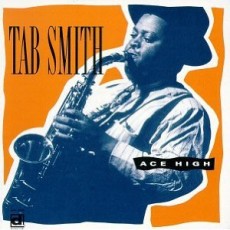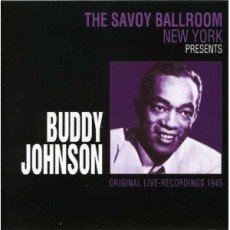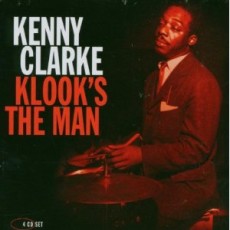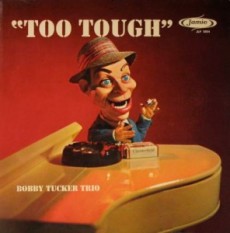
From Broadway To 52nd Street
No Strings opened the curtain at the 54th Street Theatre on March 15, 1962 and ran for 580 performances. The musical starred Richard Kiley and Diahann Carroll performing music composed by Richard Rodgers, and The Sweetest Sounds and Loads of Love went on to become part of the classic jazz lexicon.
The Story: In Paris, David Jordan, a prize-winning writer suffering from a long dry spell meets a black model, Barbara Woodruff. Their budding romance wilts when David learns that a wealthy admirer has kept Barbara. Later they resume their affair but after recognizing that an interracial marriage would be doomed, they go their separate ways.
Jazz History: When trumpeter Miles Davis, under the influence of James Brown, Sly Stone, and Jimi Hendrix, crossed over to a new rock-inflected form with his influential Bitches Brew album in 1970, the new sub-genre of jazz-rock fusion gained jazz legitimacy for about a decade. Numerous graduates of Davis’ experiment—including pianists Herbie Hancock, Keith Jarrett, Joe Zawinul, and Chick Corea, drummers Tony Williams and Jack DeJohnette, percussionist Airto Moreira, saxophonist Wayne Shorter, guitarist John McLaughlin, and bassist Dave Holland—went on to success as leaders or members of 70s fusion super groups like Weather Report, Return to Forever, Lifetime, and the Mahavishnu Orchestra. Fusion was followed by a lighter, radio-friendly style called smooth jazz, which ultimately diminished the legitimacy of fusion in the minds of jazz purists. Fusion was innovative in its time, however, for it brought electronics and a strong backbeat into jazz, while influencing an entire new generation to begin exploring the style.
Sponsored By
www.whatissuitetabu.com

Daily Dose Of Jazz…
Talmadge (Tab) Smith was born in Kinston, North Carolina on January 11, 1909. He joined his first professional band, the Carolina Stompers, in 1929 and in the 1930s and 1940s he spent several years in the bands of Lucky Millinder and Count Basie as well as spending long periods freelancing both as a player and as an arranger. After WWII he led his own groups, which concentrated on rhythm and blues as jazz turned from swing to bop.
His biggest R & B hit was “Because of You”, recorded for United Records reached #1 on the R & B charts and number 20 on the pop charts, in 1951. His association with United lasted until 1957, put ting out 24 singles and a 10-inch LP for the company sometimes alternating on tenor saxophone.
During the 1950s, Smith was a significant rival to alto saxophone-playing bandleader Earl Bostic, and was also in competition with his own formative influence Johnny Hodges, until Hodges returned to Duke Ellington’s band.
His career never recovered from the closure of United Records. After brief stays at Checker and King Labels, Tab retired from the music business in the early 1960s. He sold real estate, and played piano part-time in a steakhouse.
Alto saxophonist Tab Smith, who concentrated on swing and R&B genres, passed away in St. Louis, Missouri on August 17, 1971.
More Posts: saxophone

Daily Dose Of Jazz…
Buddy Johnson was born Woodrow Wilson Johnson on January 10, 1915 in Darlington, South Carolina. He took piano lessons as a child and classical music remained one of his passions. In 1938 he moved to New York and the following year toured Europe with the Cotton Club Revue, but was expelled from Nazi Germany. Later in 1939 he first recorded for Decca Records with his band, soon afterwards being joined by his sister Ella as vocalist.
In 1941 he assembled a nine-piece orchestra and soon began a series of R&B and pop chart hits that included “They All Say I’m The Biggest Fool” with Arthur Prysock on vocals and his sister Ella’s recording of “Since I Fell for You” in 1945, that would later become a jazz standard. In 1946 Buddy composed a Blues Concerto, which he performed at Carnegie Hall two years later. His orchestra remained a major touring attraction through the late 1940s and early 1950s, and continued to record in the jump blues style with some success for Mercury Records. By the end of the 50s Buddy switched to Roulette Records the next year, and bowed out with a solitary session for Hy Weiss’s Old Town label in 1964.
Buddy Johnson, jazz and blues pianist and bandleader passed away on February 9, 1977 in New York at the age of 62 from a brain tumor and sickle cell anemia.
More Posts: bandleader,piano

Daily Dose Of Jazz…
Born Kenneth Spearman Clarke on January 9, 1914 in Pittsburgh, Pennsylvania, Kenny Clarke grew up in a musical family, studied multiple instruments, including vibes and trombone, as well as music theory and composition while still in high school. As a teenager he played in the bands of Leroy Bradley and Roy Eldridge. He later toured around the Midwest for several years with the Jeter-Pillars band that also featured bassist Jimmy Blanton and guitarist Charlie Christian. By 1935, he was more frequently in New York, where he eventually moved and worked in groups led by Edgar Hayes and Lonnie Smith.
While working in the bands of Edgar Hayes and Roy Eldridge, Clarke started developing the rhythmic concepts that would later define his contribution to the music. He began experimenting with moving the time-keeping role from the combination of snare drum or hi-hat and bass drum to embellished quarter notes on the ride cymbal, the familiar “ding-ding-da-ding” pattern, which Clarke is often credited with inventing. One of these passages, a combination of a rim shot on the snare followed directly by a bass drum accent, earned Clarke his nickname, “Klook”, which was short for “Klook-mop”, in imitation of the sound this combination produced. This nickname was enshrined in “Oop Bop Sh’Bam”, recorded by Dizzy Gillespie in 1946 with Clarke on drums, where the scat lyric to the bebop tune goes “oop bop sh’bam a klook a mop.”
Clarke himself claimed that these stylistic elements were already in place by the time he put together the famous house band at Minton’s Playhouse, which hosted Monk, Parker, Gillespie, Russell, saxophonist Don Byas and many others while serving as the incubator of the emerging small group sound. While playing at Minton’s, Clarke made many recordings, most notably as the house drummer for Savoy Records. When the musicians from the Minton’s band moved to different projects, Clarke began working with a young pianist and composer John Lewis and vibraphonist Milt Jackson, and with the addition of bassist Ray Brown they formed the Modern Jazz Quartet or MJQ. The group pioneered what would later be called chamber jazz or third stream, referring to its incorporation of classical and baroque aesthetics as an alternative to hard bop.
Clarke stayed with the MJQ until 1955, relocating in Paris in 1956. As soon as he moved to Paris, he regularly worked with visiting American musicians in, as well as forming a working trio, known as “The Bosses”, with Bud Powell also a Paris resident and Pierre Michelot. In 1961 along with pianist Francy Boland, Kenny formed a regular big band “The Kenny Clarke-Francy Boland Big Band that lasted eleven years and featured leading European and expatriate American musicians, such as Johnny Griffin and Ronnie Scott.
Drummer Kenny Clarke continued recording and playing with both visiting U.S. musicians along with his regular French band mates until his death on January 26, 1985 in Montreuil-sous-bois. In 1988 he was inducted into the Down Beat Jazz Hall of Fame and his innovation set the stage for the development of the bebop combo, which relied heavily on improvised exchanges between drummer and soloist to propel the music forward.
More Posts: drums

Daily Dose Of Jazz…
Bobby Tucker was born Robert Nathaniel Tucker on January 8, 1923 in Morristown, New Jersey. His rise to recognition came On November 12, 1946 when during Billie Holiday’s stay at the Down Beat Club he was drafted to accompany Holiday because Eddie Heywood refused his opportunity. Billie’s stay at the Down Beat was so successful due to Tucker’s playing that she decided to keep him as her accompanist. The partnership lasted until 1949, where Tucker quit due to Holiday’s abusive lover, John Levy (not the bassist) threatening him.
After leaving Holiday, Tucker began playing with Billy Eckstine, a partnership and friendship that last more than forty years. He recorded on multiple sessions with Billy but was featured on the 1960 album “No Cover, No Minimum”, in which he arranged and conducted the orchestra behind Eckstine. That same year Tucker also released his only known album under his own name “Too Tough”.
Bobby was especially sought out as an accompanist for singers among them Johnny Hartman, Lena Horne and Antonio Carlos Jobim. He was a musician’s musician whose quiet yet prolific career renders little biographical information, yet spanned the jazz age from the 40s to the 60s and beyond with his friend Billy Eckstine.
Pianist, arranger and conductor Bobby Tucker passed away of a heart attack on April 12, 2007 in his hometown of Morristown, New Jersey at the age of 85.


